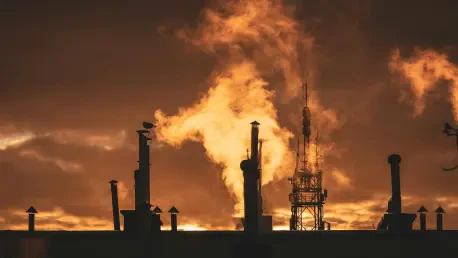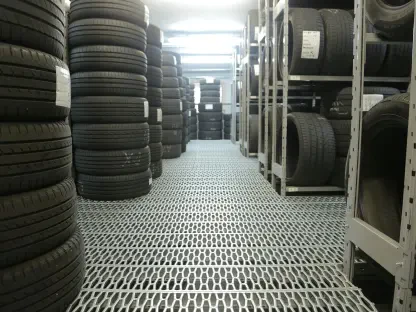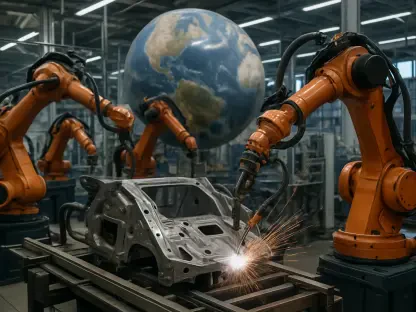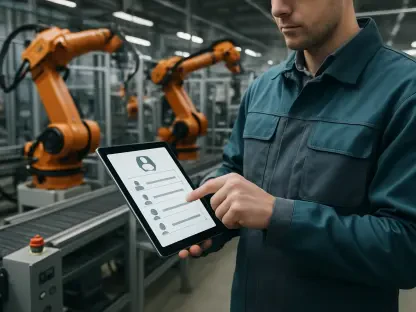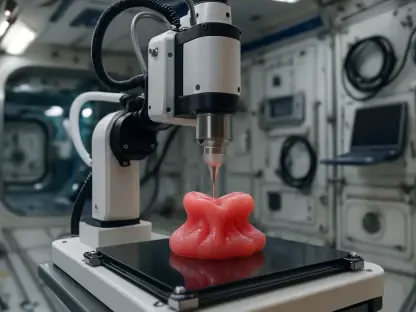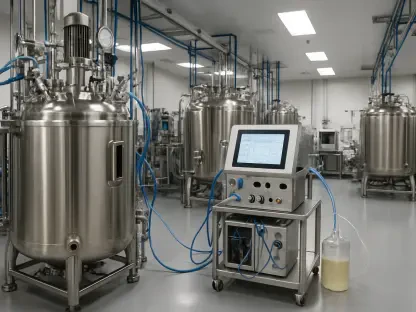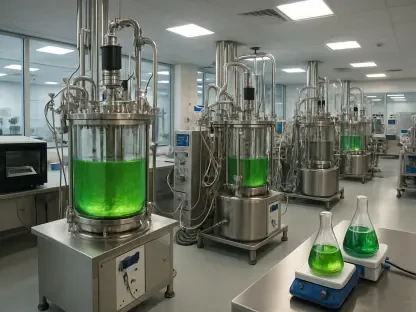In a critical moment for global environmental policy, the ongoing negotiations for a landmark plastics treaty at the Intergovernmental Negotiating Committee (INC-5.2) talks in Geneva have sparked intense debate over corporate influence. Reports reveal a staggering presence of at least 234 lobbyists from the fossil fuel and chemical industries, outnumbering the combined diplomatic delegations of the 27 European Union nations and the EU itself, which total 233. This significant disparity raises pressing questions about the balance of power at a juncture where the treaty’s final text is expected to be shaped. The heavy industry presence, surpassing even the 221 lobbyists at the prior INC-5 meeting, suggests a deliberate push to steer outcomes in favor of corporate interests. As nations strive to address the escalating crisis of plastic pollution, the overwhelming number of industry representatives casts a shadow over the potential for an equitable and effective agreement, prompting concerns among environmental advocates and policymakers alike.
Corporate Presence and Power Dynamics
The sheer scale of industry representation at the INC-5.2 talks paints a troubling picture of influence in environmental policymaking. With over 234 lobbyists from major players like Dow, ExxonMobil, and the American Chemistry Council in attendance, their numbers overshadow many national delegations, creating a stark imbalance. Critics argue that this disproportionate presence allows these corporations to exert undue pressure on smaller or less-resourced countries, potentially swaying negotiations toward outcomes that prioritize profit over planetary health. The fossil fuel and chemical sectors, deeply tied to plastic production with over 99% of plastics derived from their products, have a vested interest in limiting the treaty’s scope. This dynamic threatens to dilute provisions that could enforce stricter regulations on production and extraction, core drivers of the pollution crisis. Environmental groups warn that without checks on this influence, the treaty risks becoming a hollow gesture, failing to address the root causes of the issue and instead catering to the very industries fueling the problem.
Beyond the numbers, the tactics employed by these lobbyists add another layer of concern to the negotiations. Reports suggest that industry representatives are not only participating in formal discussions but also engaging in behind-the-scenes efforts during intersessional periods to align the treaty with their commercial goals. This includes lobbying specific nations to focus on less impactful areas like waste management and consumption, while sidestepping restrictions on production. Voices from organizations like the International Pollutants Elimination Network (IPEN) highlight how such maneuvers undermine the treaty’s potential to safeguard public health and the environment. Pamela Miller from IPEN has emphasized that this imbalance of power could result in a final agreement that lacks the strength needed to enact meaningful change. As the talks progress, the challenge lies in ensuring that the voices of environmental advocates and affected communities are not drowned out by the strategic interventions of corporate actors determined to maintain the status quo.
Conflicts of Interest and Environmental Risks
A fundamental conflict of interest lies at the heart of the plastics treaty negotiations, as the fossil fuel and chemical industries are intrinsically linked to the pollution they are tasked with addressing. Critics, including Ximena Banegas from the Center for International Environmental Law (CIEL), point out that many of these companies face legal scrutiny for their contributions to the broader climate crisis, yet they hold significant sway at the table. Their history of obstructing environmental agreements raises red flags about their intentions at INC-5.2, where they appear focused on shaping a treaty that avoids stringent controls on their operations. Over 99% of plastics stem from fossil fuel-based chemicals, tying these industries directly to the escalating plastic waste problem. Environmental advocates argue that allowing such players to heavily influence the treaty risks perpetuating a cycle of pollution, as their priorities often clash with the urgent need for systemic change to protect ecosystems and human well-being from plastic’s pervasive harm.
Adding to the complexity, major oil-producing nations represented at the talks often align with industry interests, showing reluctance to support measures that curb production or extraction. Dr. Vishvaja Sambath from the Centre for Financial Accountability, speaking for the Break Free From Plastic movement, has noted a troubling indifference among these nations to the wider impacts of plastic production. Instead, their focus remains narrowly on downstream issues like consumption and waste, ignoring upstream solutions that could strike at the core of the crisis. This stance, echoed by industry lobbyists, threatens to weaken the treaty’s framework, rendering it incapable of tackling the full lifecycle of plastics. Groups like Greenpeace and the Global Alliance for Incinerator Alternatives share a unified concern that without addressing production, the agreement will fall short of its transformative potential. The risk is clear: a treaty shaped by such limited perspectives may fail to deliver the comprehensive action needed to mitigate plastic pollution on a global scale.
Looking Back at a Pivotal Challenge
Reflecting on the dynamics at INC-5.2, it became evident that the overwhelming presence of fossil fuel and chemical industry lobbyists posed a significant hurdle to crafting a robust plastics treaty. Their numbers, surpassing even the combined EU delegations, underscored a troubling power imbalance that echoed through the negotiation halls in Geneva. Environmental advocates and organizations like CIEL and IPEN repeatedly voiced alarm over how corporate influence steered discussions away from critical areas like production limits, focusing instead on less consequential measures. Moving forward, the challenge lies in establishing mechanisms to curb such overreach in future talks, ensuring that environmental and public health priorities take precedence. A potential step could involve stricter rules on lobbyist participation or enhanced transparency in negotiations. As the global community continues to grapple with plastic pollution, learning from this experience offers a chance to build a more balanced framework that truly addresses the crisis at its roots.
